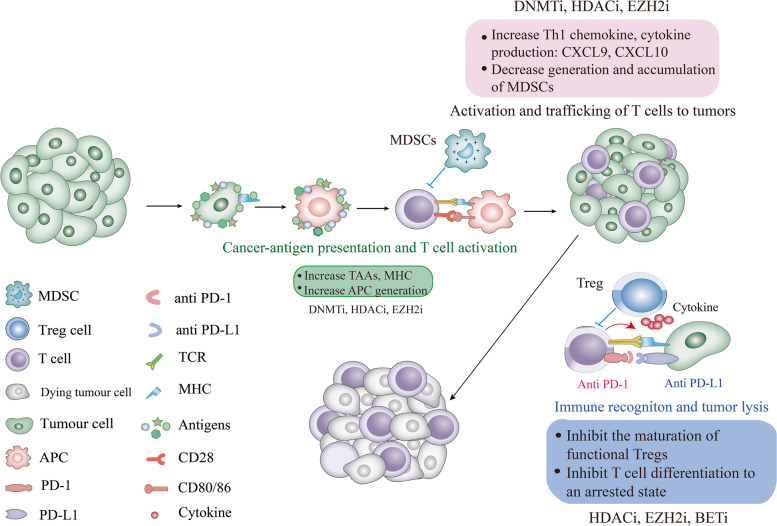Fig. 2.
The potential functions of epigenetic modulators in multiple aspects of the TME and immune cycle. First, epigenetic drugs may induce ICD of cancer cells, enhance the expression of various tumor-associated antigens (TAAs), MHC molecules, and the generation of APC, thus enhancing immune cell priming and effector T cell recognition of tumor target cells. DNMTi, HDACi and HMTi (EZH2 and G9a) have demonstrated such biological effects [114–116]. Secondly, epigenetic drugs may target a variety of types of immune cells, resulting in reduced generation and accumulation of MDSC [117, 118], and inhibited differentiation and function of Treg (e.g., EZH2i) [119–121]. Third, during these processes, the drugs commonly result in compensatory increases in the production of effector T cells-chemokines and the activation of effector (anti-tumor) T cells, with therapeutic synergy observed for combined use with immune checkpoint blockade agents. The detailed effects of various classes of inhibitors have been discussed under various Sections. This figure is modified from Chen X. et al., 2020 [122]

